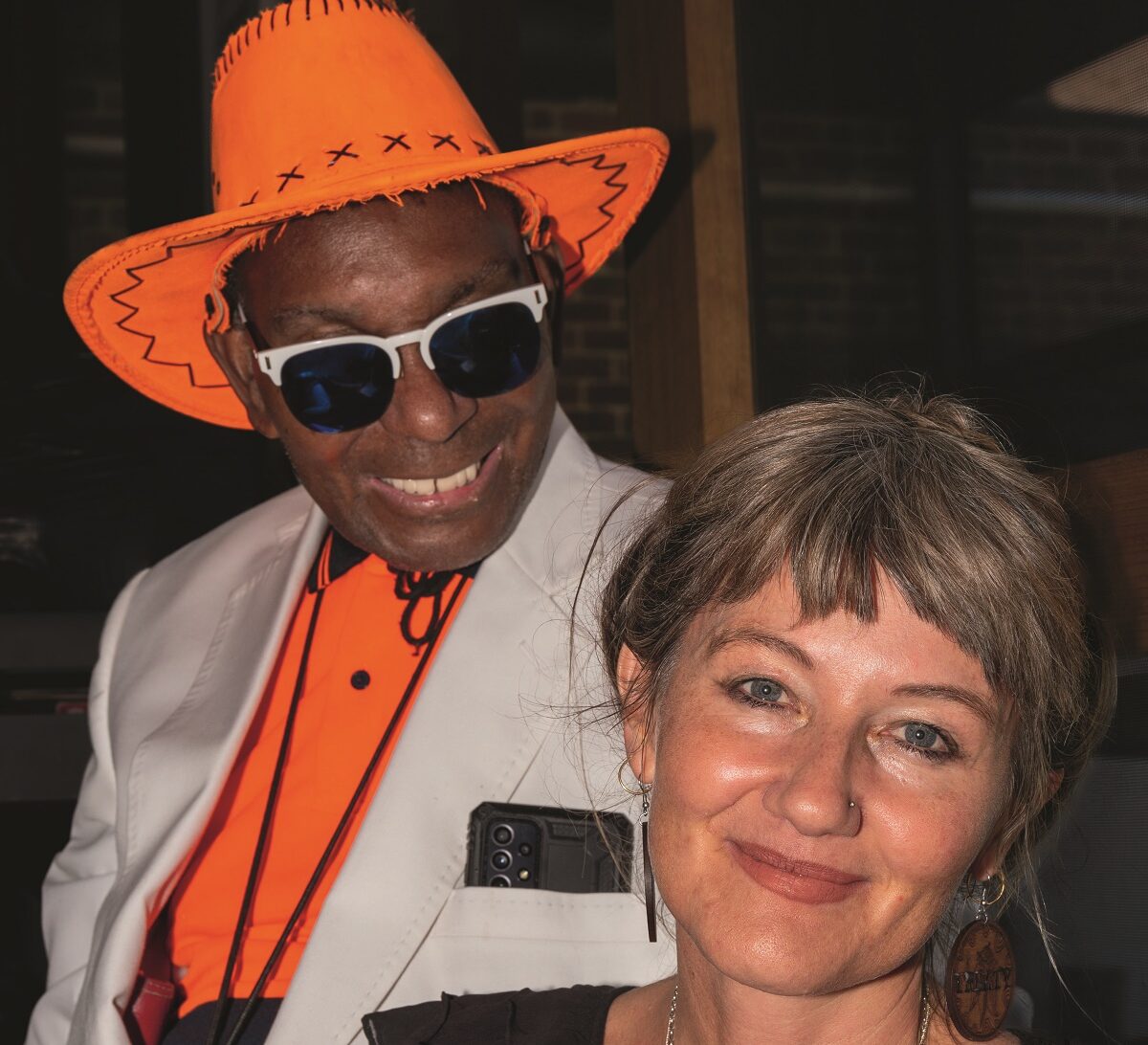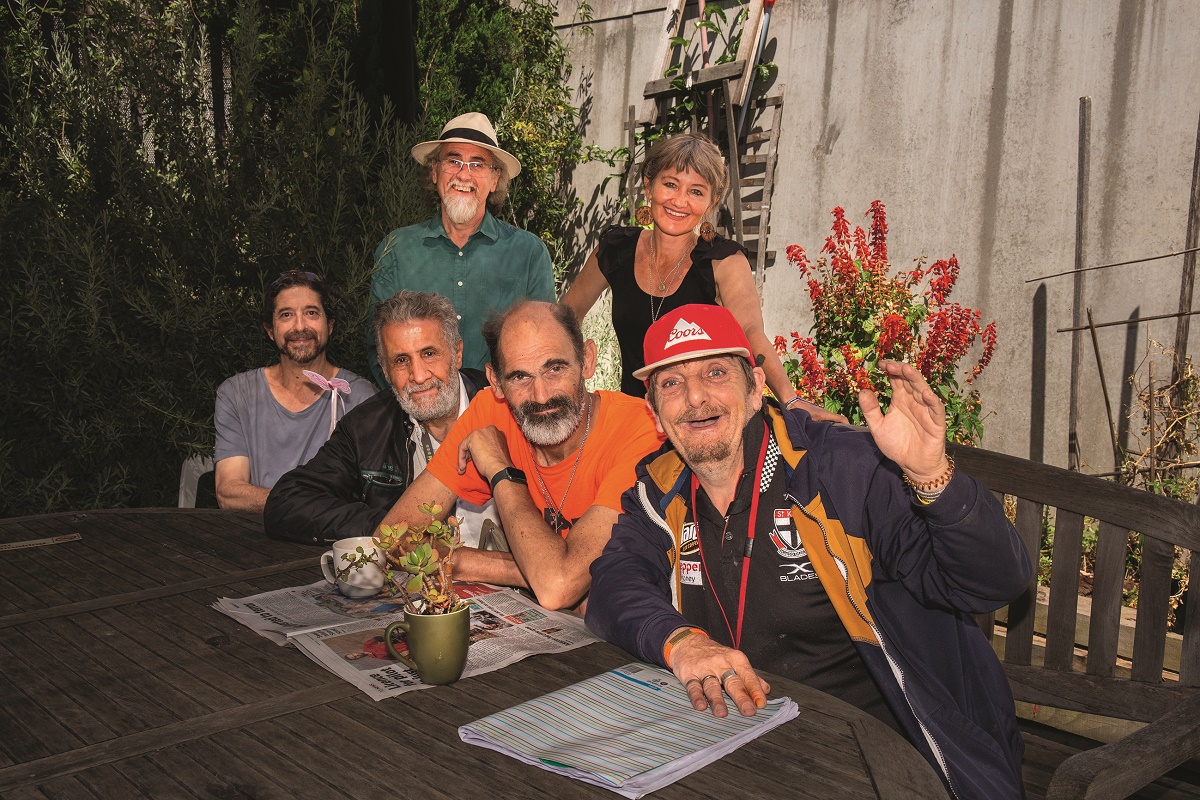By Andrew Humphries
On the streets of St Kilda, Uniting Church Minister Rev Alex Sangster gets a daily glimpse of why missional work is so important in the lives of so many people.
At the 101 Engagement Hub on the corner of Carlisle and Chapel streets, Alex, her fellow St Kilda South Port Uniting Church Minister Rev Deacon John Tansey and a committed group of volunteers are doing what they can to make each day a little bit easier for some of the city’s most vulnerable people.
The engagement hub is the most visible example of outreach, providing programs, support, breakfast and lunch to up to 80 people each week day.
“The call for me to join the community at St Kilda was around the work that they’ve been doing for 40 years at the engagement hub, with some of our most vulnerable people,” Alex says.
“That was work I had always wanted to do and had sought out in whichever ministry placement I was in, and this was a placement that allowed me to do it in a more grounded, gritty and day-to-day way.
“The people that come to the engagement hub are so vulnerable and so filled with trauma, and often so broken by the world, but they need somewhere to go that feels like home.
“And the truth is that the engagement hub is hilarious, and holy and humble, and I feel very privileged and lucky to be a part of it.
“There is nowhere else I would rather be.”
It’s a sentiment shared by John, who has returned to St Kilda, a placement he first held for 15 years from 2001.
Like Alex, it’s the work that John can do in the missional space that is so important to him.
In fact, it’s the very reason he jumped at the opportunity to become part of the new congregation.
“Even when I was first there, the mission part of the role through the engagement hub really fitted in with what I’m about,” John says.
“That was a big part of why I went to St Kilda and, at that time, I doubt I would have gone into a congregation that didn’t have that strong sense of mission.
“With St Kilda there was a good balance of worship and mission.”
Twenty-three years later, John is still as passionate about the missional side of his work as ever.
“I think it’s the fact that there are so many things happening around that space,” he says.
“It creates a sense of community for people who are so often isolated, and a space for people who are dealing with that loneliness and isolation.
“A space that is free to access and where people can get support and a feed and some sense of community is vitally important.
“We’re creating a community where people are welcome and it doesn’t matter if they’re unwell, or what they look like or what they’re wearing, they are welcome and included.”
The great work at the engagement hub doesn’t happen, though, without wonderful volunteers.

Alex with Peter, one of the engagement hub’s long-time participants.
“There are amazing volunteers like Tito, who is 90,” Alex says.
“He has been running methadone programs in St Kilda for 40 years and also works at an Aboriginal women’s refuge two days a week helping women withdraw from heroin, and then he comes and washes dishes at the engagement hub.
“We have a core team of workers who’ve been here for a really long time and have been through changes, and they’re an astonishing little community of human beings who are so loved by the participants.”
For Alex and John, their work with some of Melbourne’s most marginalised people goes to the heart of what being a minister is all about.
After all, as Jesus says, “it is more blessed to give than to receive”.
It’s an edict that has seen Alex literally climb fences to connect with those in need.
“One of the first things we discovered at South Melbourne, where there is a very beautiful old building with social housing behind it and a huge housing commission tower, is that historically there’s basically been no connection between the social housing, housing commission tower and the church,” Alex says.
“The social housing units are set up for older people who have nowhere else to go, and so I really wanted to connect with them.
“However I couldn’t work out how to see them because it’s all closed up and you need a swipe card to get in, so in the end I jumped the back fence that we share with them and started knocking on doors.
“Because of that we began to meet our neighbours and now a whole lot of them attend church.
“We also run a mission meals project on a Thursday night, which started with just three people, and now we’re up to a regular attendance of about 50 people, and wonderful things are happening as part of it.
“There were a few weeks where different men were turning up at different times and then they all realised that they all lived in the same housing estate, and now they all come to the dinner together and they walk home together.
“One of the guys that has started coming, and also occasionally comes to church, is Jewish and then another guy who comes quite regularly is Muslim, and so they have formed this incredible relationship and they come to church together.
“So there’s been lots of spirit moments that came about just by opening up the doors, jumping a fence or two and seeking out our neighbours.”
John says the engagement hub goes to the essence of what ministering is about.
“For me, it’s about looking outside the congregational aspect into the community, but it doesn’t have to be one or the other,” he says.
“One of the motivating things for me in the sense of a calling was to do this type of missional work outside the church assisting those who are struggling and aren’t being cared for.
“It’s helping people who are isolated, lonely and are unwell for various reasons.
“To share this work with Alex, who also has a strong sense of social justice, is really important.
“I think we’re both on the same page in that sense, and it’s important that as a team we can work together.”

Alex and John with some of the engagement hub participants.
Three into one adds up
When the idea of an amalgamation between the congregations of St Kilda, Port Melbourne and South Melbourne was first raised, a fundamental question occurred to Rev Alex Sangster.
What would happen if the Port Phillip area no longer had a Uniting Church?
“The first question to consider among all of the amalgamation talk was would it matter if we weren’t here, if the Uniting Church shut down in Port Phillip?” Alex says.
“And then I looked around and thought to myself, ‘yes, it would matter a great deal’.”
It matters, says Alex, because for many people the Uniting Church and its progressive values represent a beacon of real hope in the Port Phillip area.
“Port Phillip has the highest number of LGBTQI+ people, as an area, in the whole of Australia, yet we’re the only church that has the rainbow flag hanging on the outside,” she says.
“It’s important that we’re here and that there’s a progressive theology which is not just spoken about, but is actually embodied and lived out in the DNA of the community.
“We’re the only church that will baptise you, marry you and bury you if you are a trans person so, yeah, we need to be here.”
As the congregation last month marked the first anniversary of the formal recognition of amalgamation, it gave Alex the prefect opportunity to reflect on what was achieved in only nine months.
Before amalgamation, St Kilda had about 15 members, South Melbourne seven, and Port Melbourne had eight.
“It was a nine-month journey involving a generous and really prophetic group of people who said to themselves, ‘let’s get this done and not waste any more time’,” Alex says.
“Port Melbourne and South Melbourne had been a sort of semi-partnership for 30 years and, so as Minister at St Kilda, my first question was ‘who are my neighbours?’
“I’ve always been a passionate believer in congregations coming together, not just for the practical reasons, but also for theological and spiritual reasons.
“Amalgamation worked because the members from all three congregations were courageous and generous and approached the task with a steely-eyed grit.”
The St Kilda, South Melbourne and Port Melbourne experience has taught Alex that amalgamation can bring a world of joy to congregation members.
“What I would say to church communities and congregations is there’s nothing to be afraid of about welcoming a stranger to your table, and that stranger might be the congregation down the road,” she says.
“When we were going through amalgamation I said to everyone, ‘we are just going to have to be a bit like John the Baptist about this: we’re not going to be Jesus in the gospel of Luke, we will be Jesus in the gospel of Mark, and we’re just going to get stuff done.
“Amalgamation can be a difficult conversation for some congregations and I think we need to radically look at our theology as to why that is.
“If you’ve been listening to the gospel for 80 years and you still don’t want to share, something has been going wrong with our preaching.”

